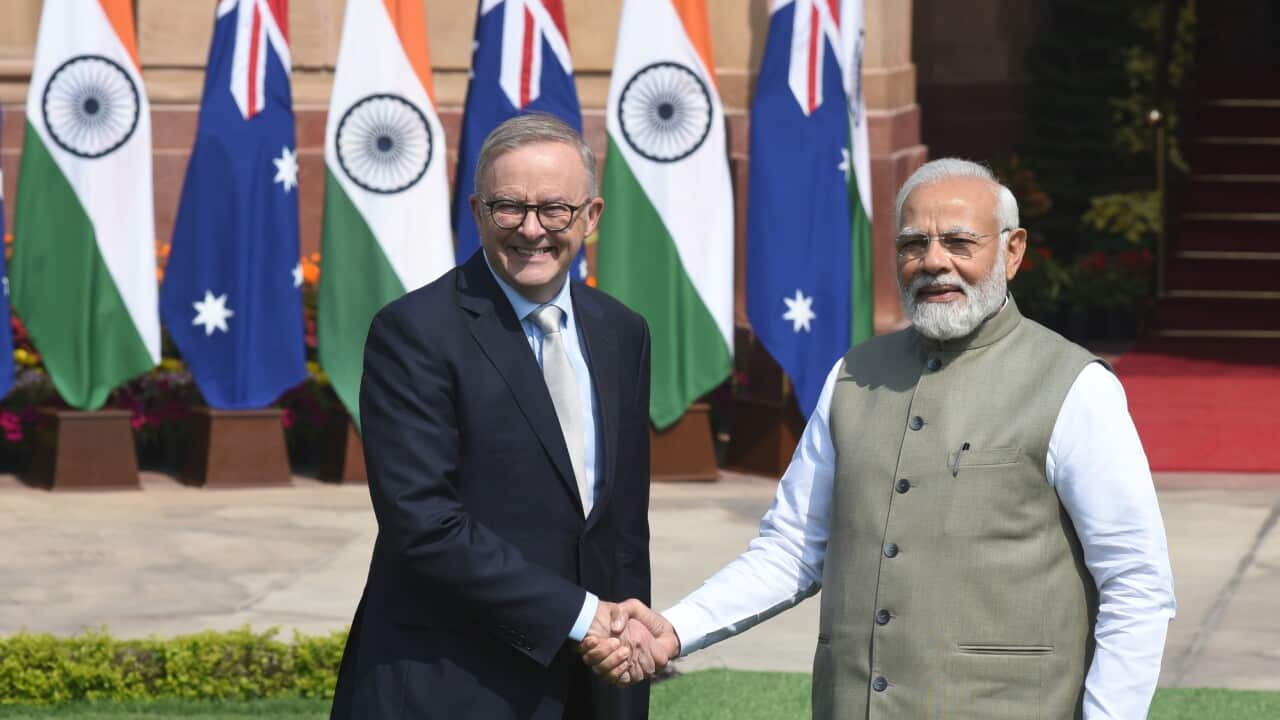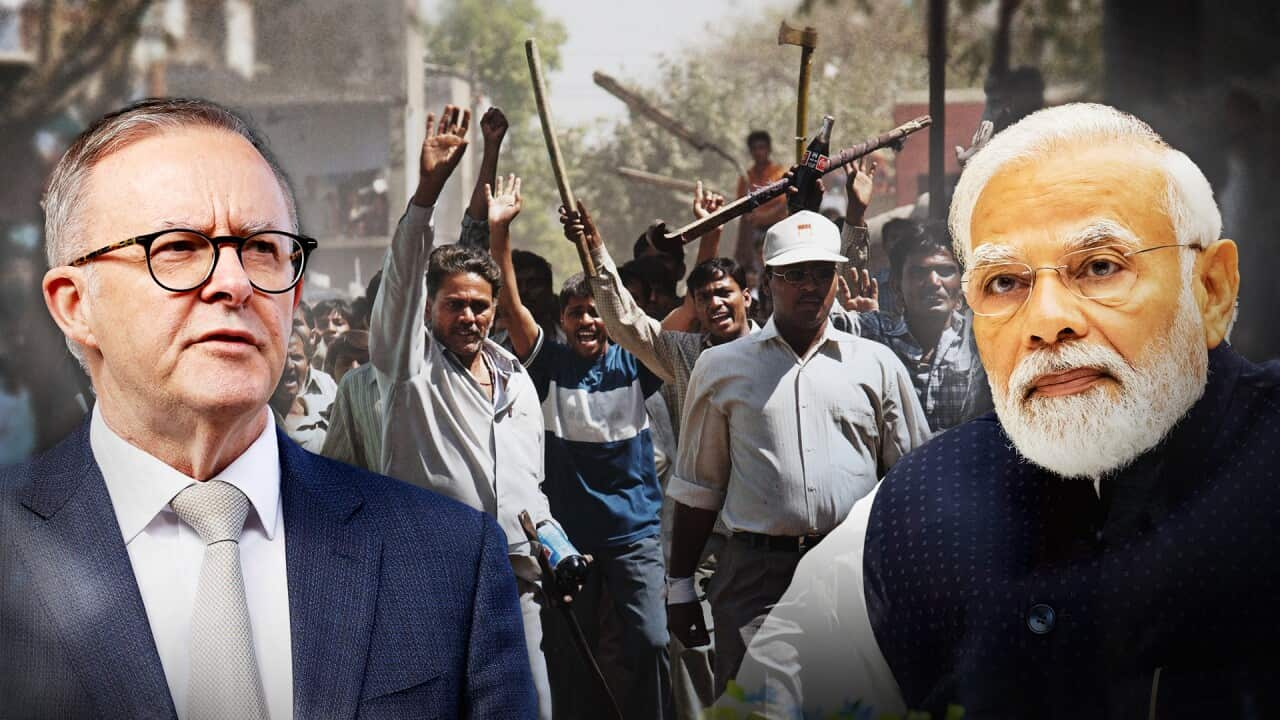KEY POINTS:
- India's main opposition leader has been sentenced to jail for defamation.
- He made a comment directed at Indian Prime Minister Narendra Modi.
- Anthony Albanese says does not know the details of the case, but wants 'strong' ties to India.
Prime Minister Anthony Albanese says he hasn't "followed all of the details" surrounding an opponent of Indian leader Narendra Modi being sentenced to jail, but insists he wants stronger ties with New Delhi.
India's main opposition leader Rahul Gandhi was last week given a two-year sentence for defamation, over a comment he made in 2019 referring to thieves having the surname "Modi".
Mr Albanese visited India earlier this month,.

The sentence was handed down weeks after Mr Albanese declared India a 'great democracy' during a visit to the country. Source: AP / Ajit Solanki
The prime minister insisted he had a good rapport with both Mr Modi and Mr Gandhi, framing the relationship as one "between two nations".
"I haven't followed all of the detail of what has occurred there. But India is, of course, the world's largest democracy and it will grow to be the third-largest economy in the world. I want closer economic relationships with India going forward," he said.
Mr Modi will travel to Australia in May for a meeting of the Quad leaders, alongside US President Joe Biden and Japanese Prime Minister Fumio Kishida.
Human rights organisations have sounded the alarm over the persecution of India's Muslim minority, as well as crackdowns on press freedom in the country.
India has plummeted to 150th out of 180 countries on the Reporters Without Borders' World Press Freedom Index, with the report citing violence against journalists while declaring a crisis of press freedom in the country.
In New Delhi, Mr Albanese replied to questions over press freedoms in India by labelling it "a great democracy".
“To dismiss that is, I think wrong," he said at the time.
What happened to Rahul Gandhi?
A court in Gujarat, western India, last week sentenced Mr Gandhi to two years jail for defamation over a comment he directed at Mr Modi in 2019.
During a speech, Mr Gandhi, who is set to contest the 2024 election, said: "Why do all thieves have Modi as their surname?"
He then specifically named Mr Modi, fugitive Indian diamond tycoon Nirav Modi, and cricket administrator Lalit Modi, who received a life ban for financial irregularities.
A complaint filed by a member of Mr Modi's Bharatiya Janata Party (BJP) argued the comments defamed anyone named Modi, which is a common surname in Gujarat.

Rahul Gandhi is expected to appeal his sentence. Source: AFP / Money Sharma
India's parliament, controlled by the BJP, stripped Mr Gandhi of his lower house seat a day after the judgment.
Mr Gandhi is out on bail for 30 days, and is expected to appeal the verdict in that period.
Members of his party dressed in black in parliament this week, marking what one member described as a "black day in our country's democracy".
What's the context?
In January, , which killed more than a thousand people, mostly Muslims.
Mr Modi's ruling party used emergency powers to block the show from airing.
The documentary revealed a UK government report had accused Mr Modi of being "directly responsible" for enabling a “climate of impunity” during the riots, which it said bore “all the hallmarks of ethnic cleansing”.
Mr Modi has repeatedly denied complicity in the riots, and the Indian justice system ultimately found he had no case to answer.
, who make up roughly 15 per cent of India's population, has been on the rise since Mr Modi swept to power in 2014.
Human Rights Watch accused the BJP of failing to properly investigate its members for incitement and hate speech, while simultaneously filing politically-motivated charges against its opponents.
The BJP rejects that allegation and, shortly after taking power, Mr Modi distanced himself from religious persecution from "the minority or the majority".
"I strongly condemn such violence. My government will act strongly in this regard, " he said.


